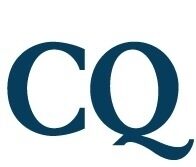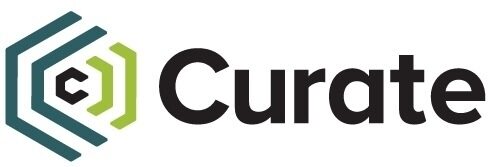
Is Western Alliance or PacWest Next? Banking System Fears Grow as Regulators Face Congressional Hearings
by Michael Fenner, Consultant, FiscalNote Professional Services

Federal Reserve Chairman Jerome Powell and the Board of Governors voted Wednesday, May 3, to increase the Federal Funds Rate another 25 basis points to the highest levels since 2007. This news comes as the United States is reeling from a third major bank closure this year, Congress and President Biden have just under one month to agree on the debt ceiling before the United States defaults on its debt obligations, inflation remains sticky, and the Federal Reserve attempts to avoid a major recession.
The latest rate hike falls in a long series of actions taken since March 2020 attempting to ease economic concerns. The statutory onus belongs to the Federal Reserve and Congress to fulfill their obligations. While Powell still believes a soft landing is possible, it is becoming increasingly difficult to believe it will be realized.
Congress and the Banks
Last week, the California Department of Financial Protection and Innovation, as well as the markets, identified significant risks in First Republic Bank's quarterly results. Consequently, the Federal Deposit Insurance Corporation (FDIC) took over the San Francisco-based bank. First Republic entered FDIC receivership and sold off assets and liabilities to JPMorgan Chase.
Shortly after the Silicon Valley Bank (SVB) collapse, JPMorgan Chase extended $30 billion in cash to First Republic to alleviate risk concerns. To prevent a banking crisis over that weekend, financial lending was offered along with the option for regional banks to borrow almost interest-free against assets at their purchase price instead of their actual value through the Federal Reserve borrowing window. This was done after SVB and Signature Bank entered receivership.
While the tools used by the Federal Reserve appeared to stem the bleeding in the initial days, the overall risk seemed too high. First Republic has a client base similar to SVB — technology companies and venture capitalists who are all rebalancing their portfolios in the wake of cash flow problems for their investments, as well as other macroeconomic conditions contributing to overall financial tightening.
Following the Federal Open Markets Committee Meeting (FOMC) on Wednesday, May 3, Jerome Powell indicated that the overall banking system is sound and resilient. Powell and Congress must prove that to the American public, as fears of additional regional banks collapsing are slowly being realized.

Numerous analysts predict Western Alliance or PacWest will be the next banks to enter receivership. Leveraging FiscalNote’s Predata intelligence, we have detected anomalies in web traffic to Western Alliance Bank following the FDIC takeover of First Republic Bank. While this does not necessarily indicate underlying financial problems at Western Alliance, it could signal widespread market fear, where customers may be moving their deposits to larger banks such as JPMorgan.
Regardless of what occurs in the coming weeks, Congress will hold hearings to investigate further risk management at Silicon Valley, Signature, and First Republic Banks. Regulators will be called to testify and explain where shortcomings had occurred in their regulation. Additionally, California will likely begin to engage in similar oversight, as most of the banks in question were based in that state. California regulators will have the answer to very similar questions to those that will be asked in D.C.
Congress will also be forced to reckon with the new relationship between the banks and the government that has developed due to the mechanisms implemented to avert an industry-wide breakdown. JPMorgan Chase is now estimated to hold 14 percent of U.S. deposits and is seen as the bank of last resort to sell assets to. The Riegle-Neal Interstate Banking and Branching Efficiency Act forbids any bank from purchasing another if it would increase the deposits held to over 10 percent of the U.S. market. FDIC regulators have continually granted JPMorgan Chase waivers to purchase these defunct banks. In the short term, this averts deposits from virtually disappearing, but congressional committees will monitor long-term fallout to assess the need for additional regulation.
Congress and the Debt Ceiling
In addition to the regional bank fears, Congress is quickly approaching the debt ceiling. Treasury Secretary Janet Yellen announced on May 1 that the federal government would officially run out of money to fulfill its obligations on June 1. This comes after Yellen implemented "extraordinary measures" to extend the U.S. cash supply further. The House of Representatives recently passed the Limit, Save, Grow Act of 2023, intended to cut spending and raise the debt ceiling. Still, it is almost certain it will not pass the Senate without significant amendments.
President Biden scheduled a meeting for May 9 of House and Senate leadership to negotiate the proposal. This comes despite the president’s objections to anything but a clean raising of the debt ceiling. Speaker McCarthy has a difficult balancing act to accomplish as he must satisfy a wing of his conference that could upend the entire deal if Democrats don't also join in.
Concerns over whether the fractious groups in Washington can agree have increased 30-day Treasury Bill yields to 5.76 percent as of May 4. Investors need more confidence in Congress and the President to come to an agreement before the U.S. defaults on its debt.
Failure to agree before the deadline would plunge the U.S. into economic uncertainty. Recession fears could be realized, stock markets would plummet, and the full faith and credit of the U.S. dollar would be invalidated.
The debt and banking crisis is coinciding as the BRICS nations (Brazil, Russia, India, China, and South Africa) have signaled their intention to develop a currency that would compete with the U.S. dollar in global exchanges. The dollar is strong primarily because it has credit stability backed by the Federal Reserve and is used in almost all foreign transactions.
The most predominant use case for the U.S. dollar is the purchase of petrol. The BRICS nations are all still considered developing nations that almost exclusively use carbon-based resources such as petrol for energy production. The coalition of these nations to begin purchasing oil using a rival currency would further question the dollar's strength as the world's reserve currency. The current debt crisis further fuels fear in international markets that the U.S. is faltering. Failure to meet debt obligations would only accelerate the concerns already presented and further bolster the argument from the BRICS countries.
When the crisis is averted or settled, Congress will likely consider legislation to raise the debt ceiling at the time of appropriation. The current mechanism is a by-product of the 1974 reforms that the budget process is based on today. While overhauling the budget process is almost entirely off the table, incremental amendments could significantly impact the entire global economy and the U.S. standing on the world stage.
Ready to Learn More?
See how PolicyNote+ lets your team access deeper insights and datasets from our award-winning professional services team.













